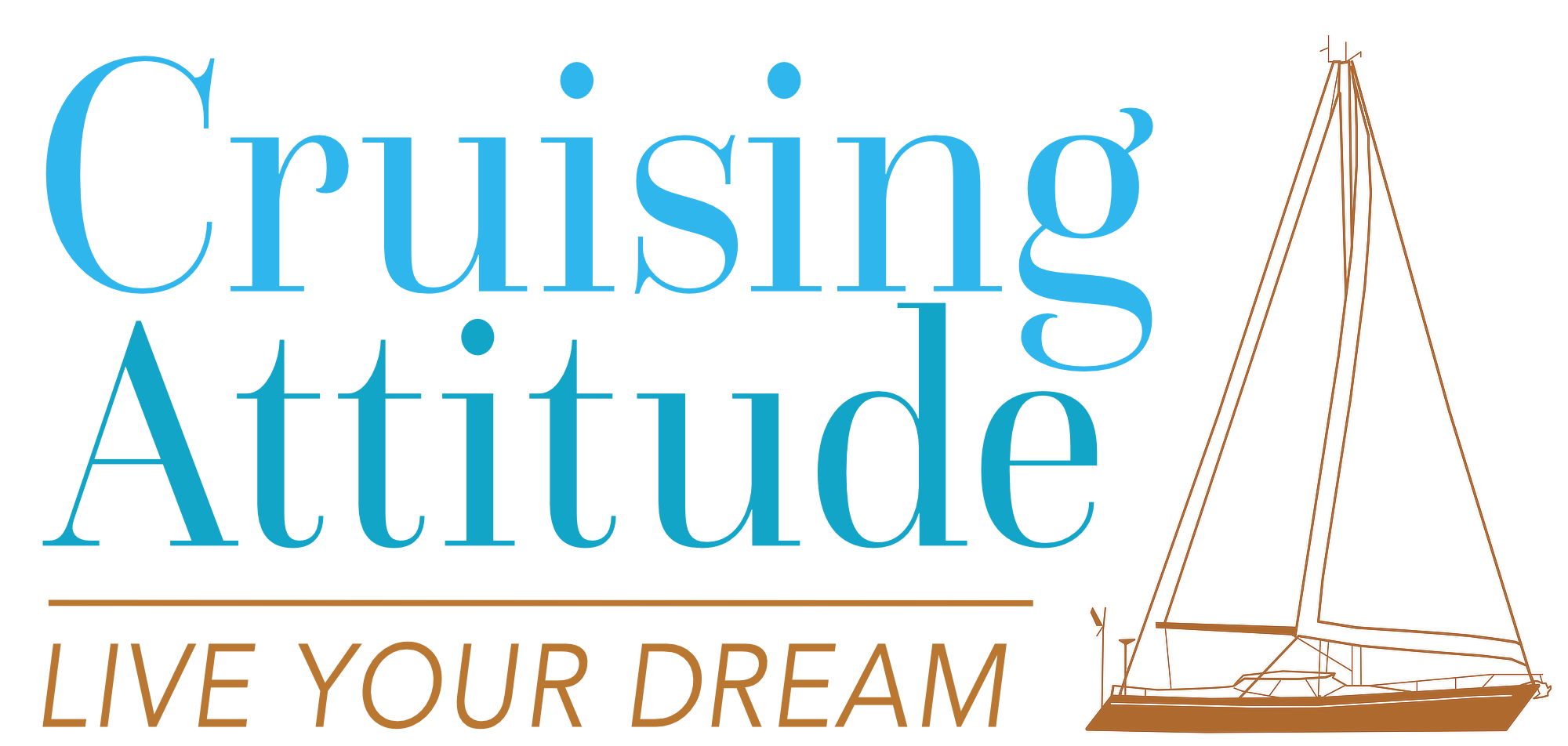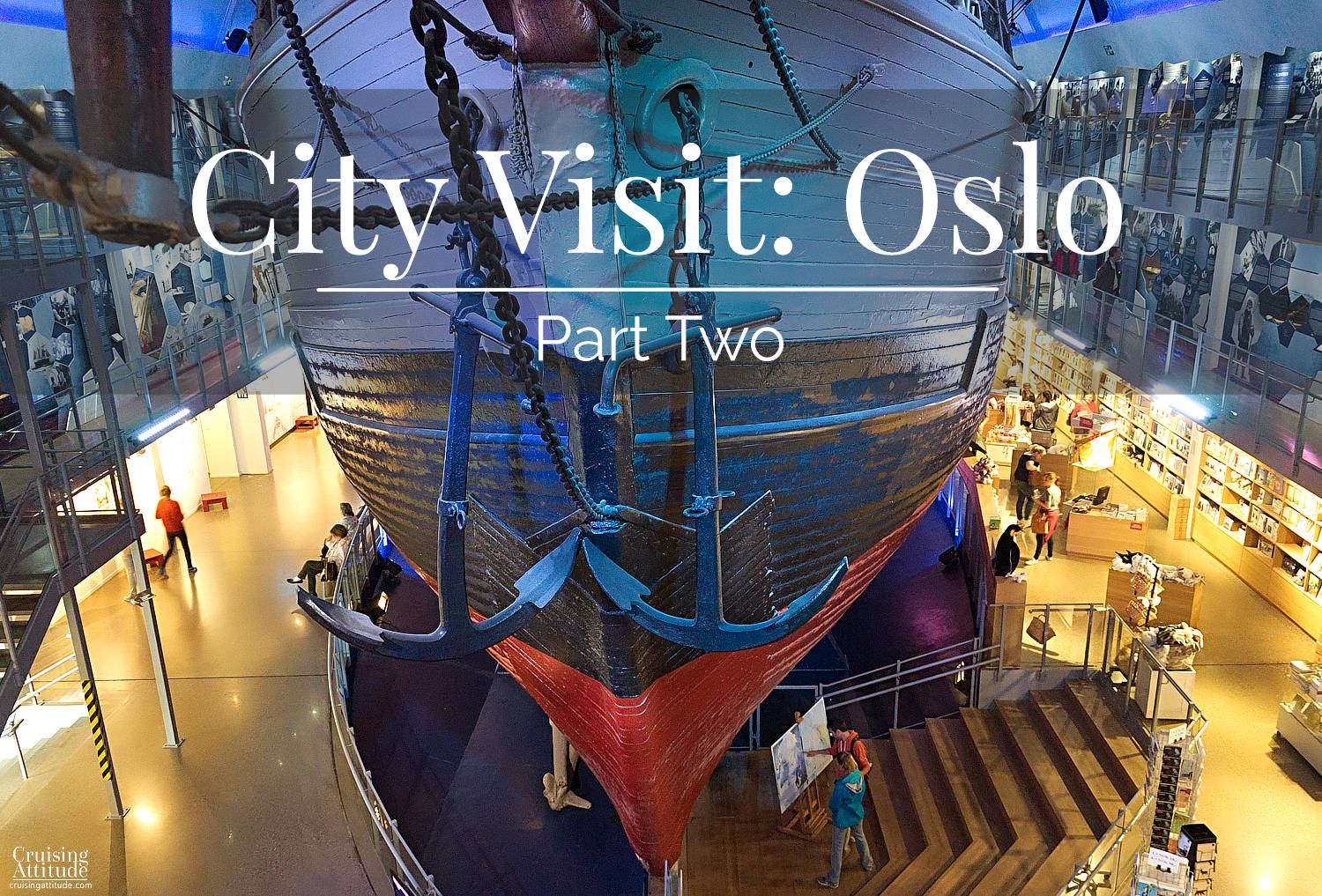
.
City Visit Oslo, Part two
Needless to say, Oslo has an immense choice of cafés, restaurants, and shops. I’ll talk about some of favourites in a future post. Here are a few of the “must-sees” in Oslo.
The Holmenkollen Ski Jump and its museum
The first thing we wanted to visit in Oslo was the Holmenkollen Ski Jump! You can see it from a great distance as you sail up the fjord to Oslo. The last time I saw the ski jump was in 1983, and it’s been through 2 remodels since then.
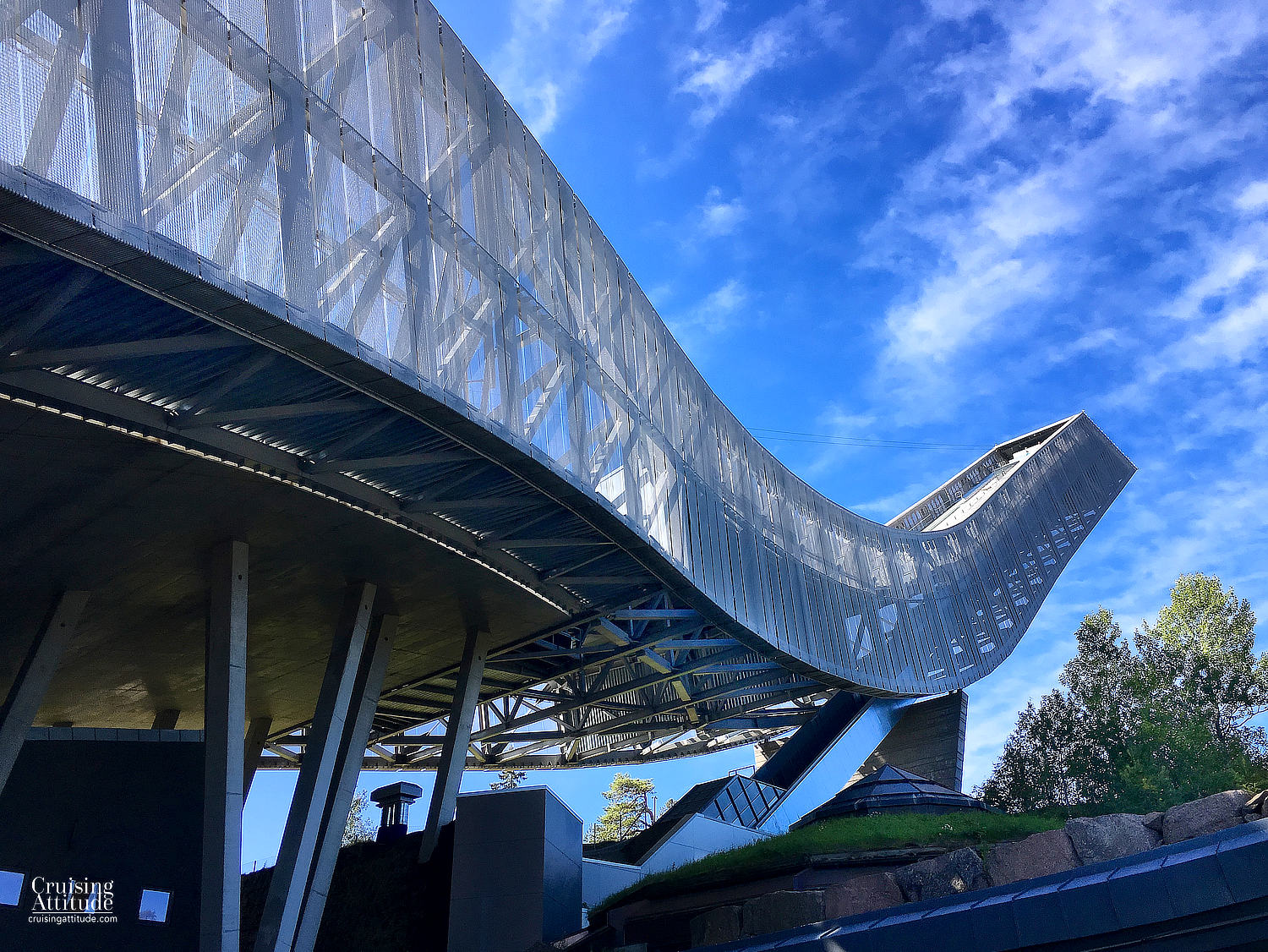
The Holmenkollen ski jump – what an amazing architectural masterpiece!
The shiny new Holmenkollen ski jump is an amazing architectural feat! Its cantilevered style gives you the impression that it could tip over at any moment. It is truly a fantastic example of modern architecture.
An elevator whisks you up to the top of the jump — it’s the same one the competitors use. Once you’re at the top you can visit the actual jumping start point. It’s incredible that someone could actually launch themselves down this steep slope — it’s much steeper and longer than it looks on television!
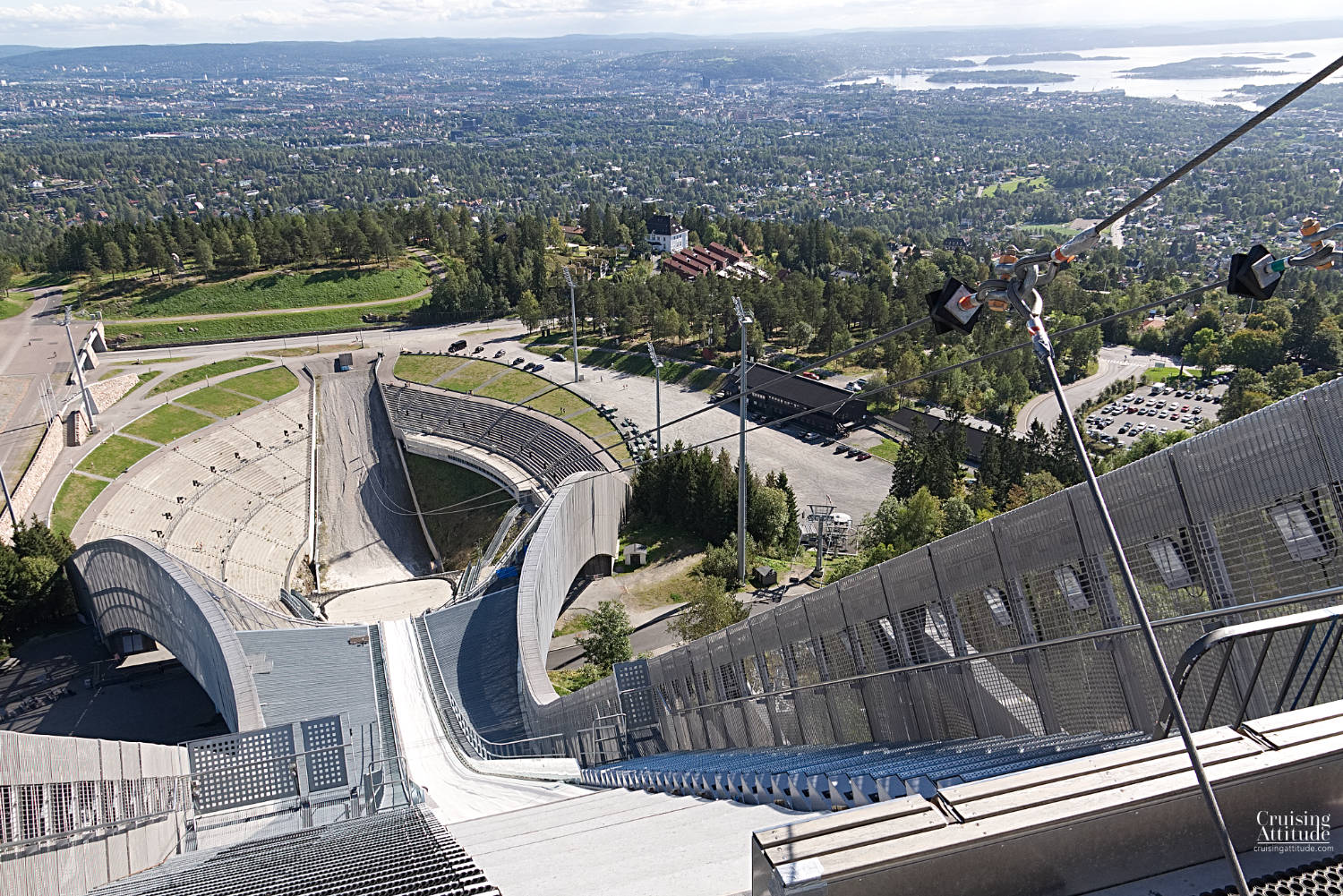
The ski jump itself is far steeper than it looks on television!
An observation platform at the very top of the structure provides gorgeous views of the Oslo Fjord, the city itself, and the surrounding countryside and mountains.
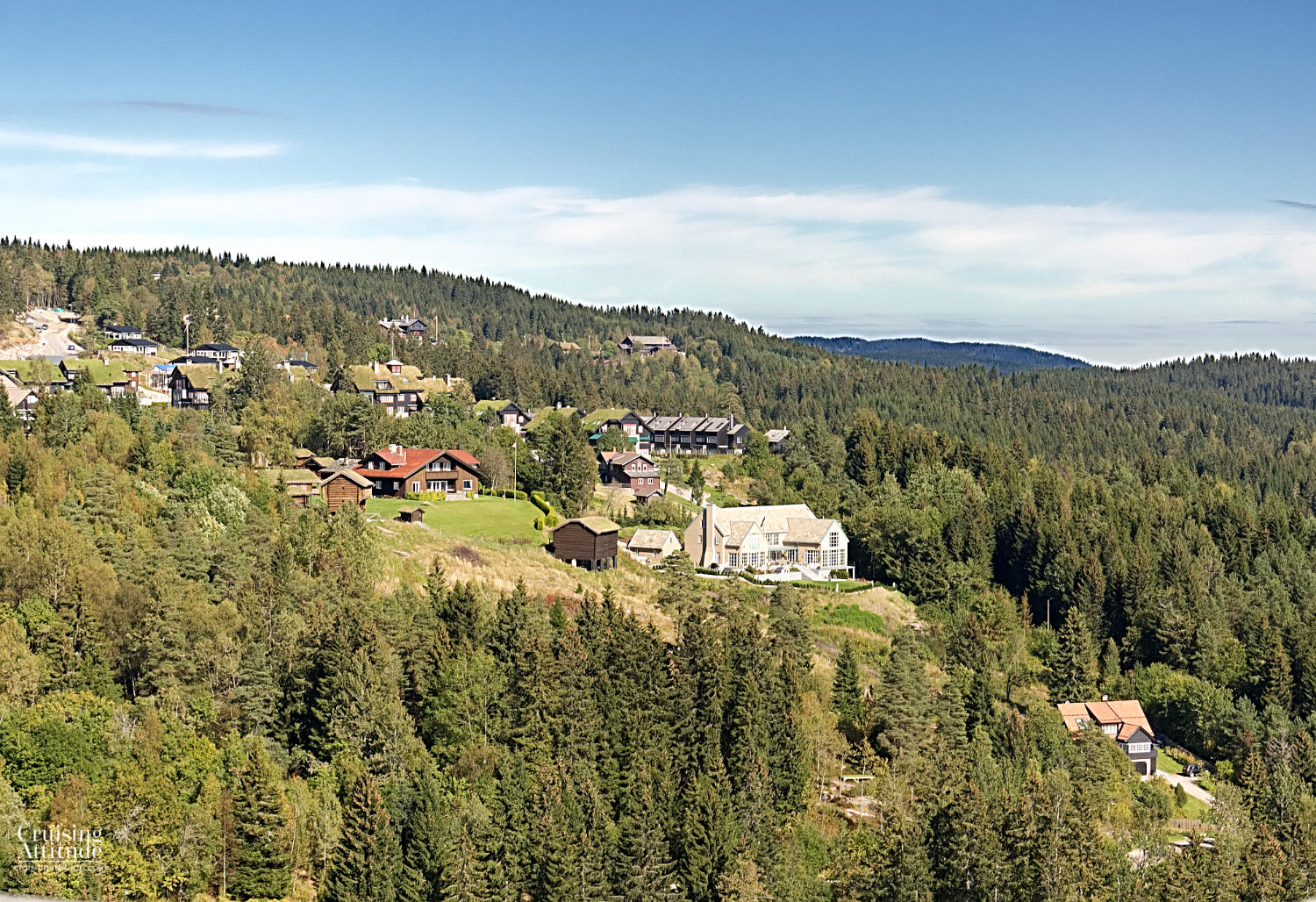
The beautiful countryside behind the ski jump.
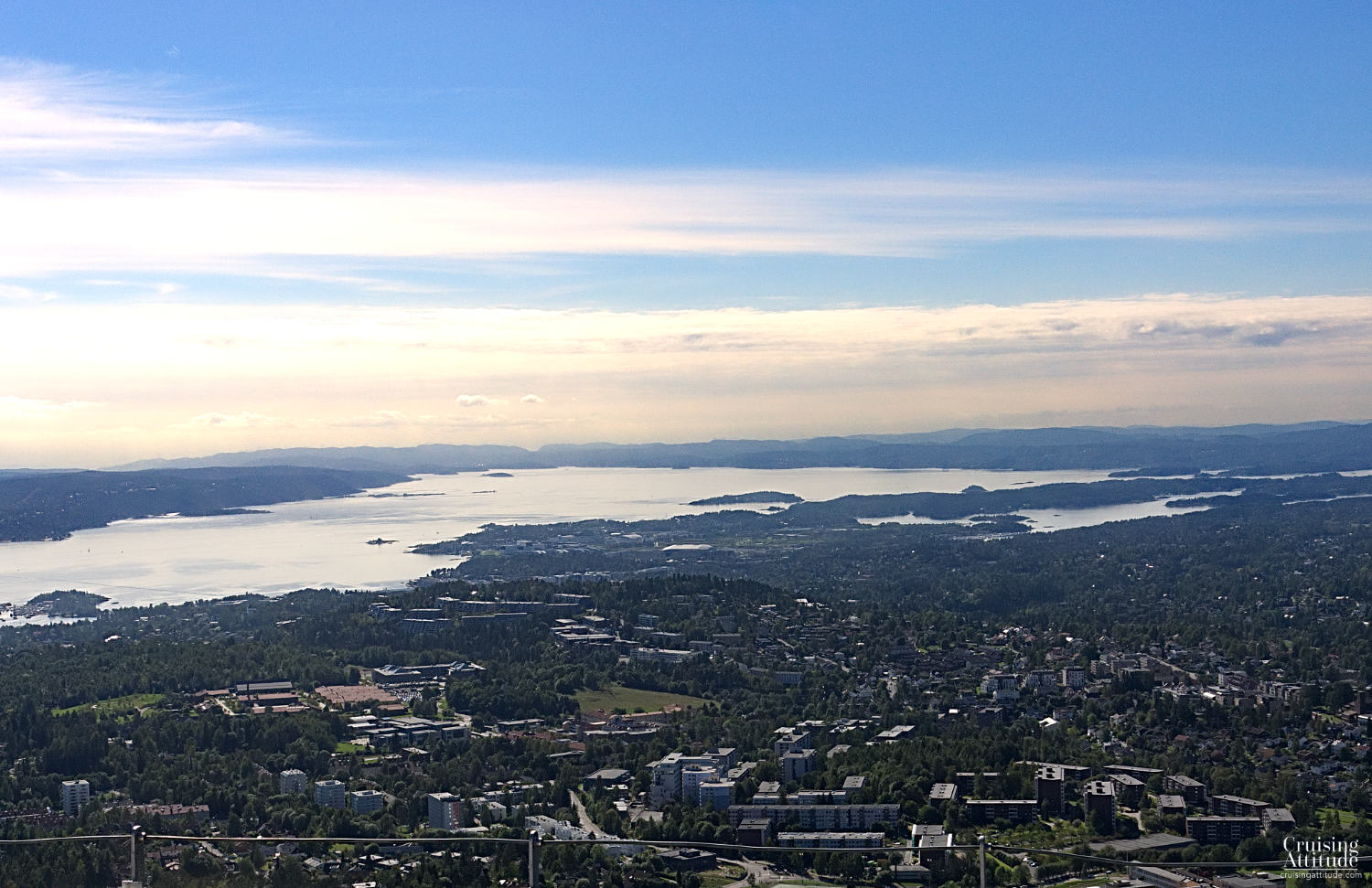
You can see quite far down the Oslo Fjord from the top of the Holmenkollen ski jump
After you’ve had enough of the view from the top, you can visit the museum on the lower levels. It’s a tribute to 4’000 years of skiing in all its forms. Don’t forget the Scandinavians used skis just to get around back in the day.
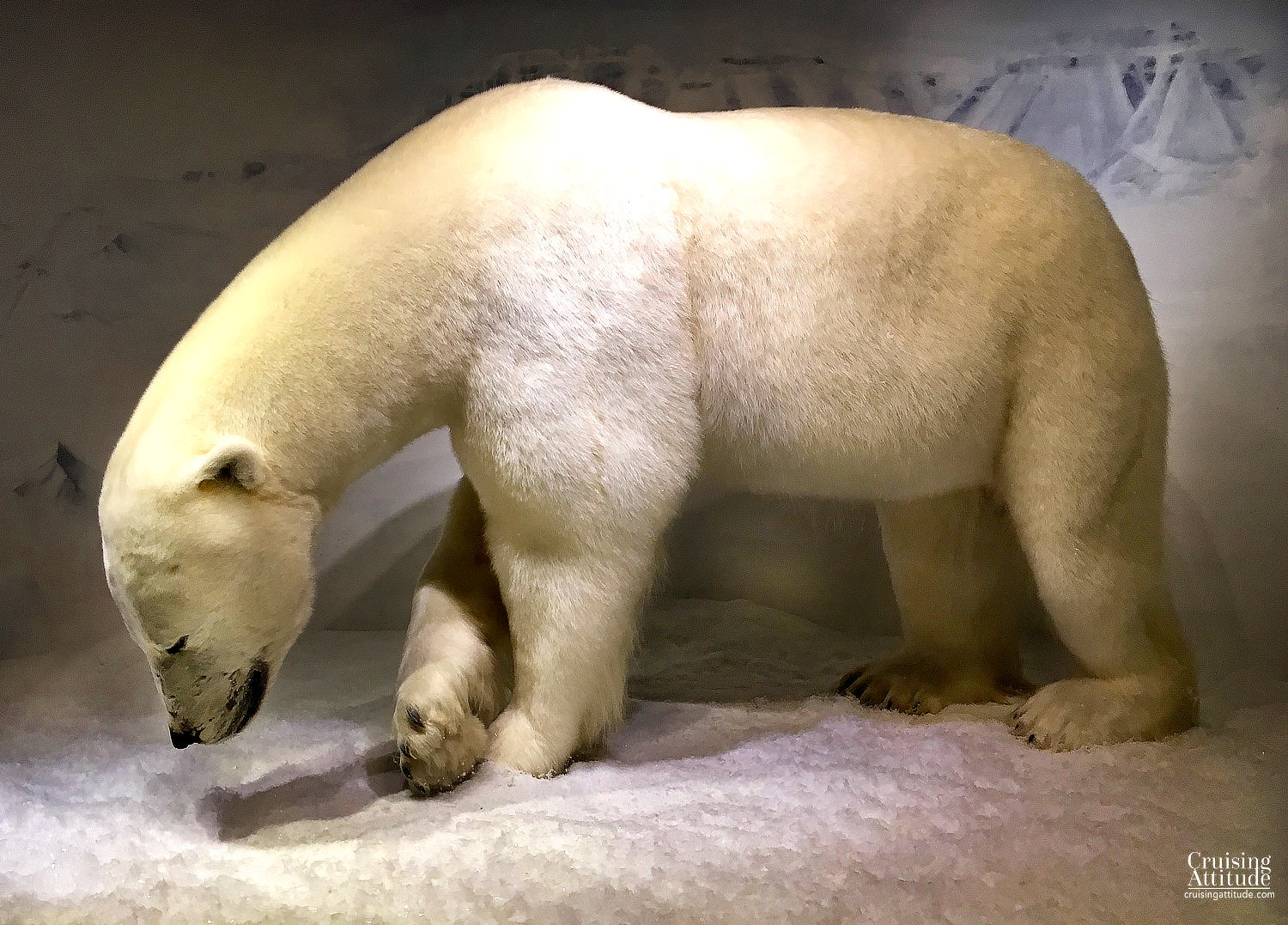
The Holmenkollen museum of skiing. They used skis to get around on Svalbard, where the polar bears live in Norway.
Admission is 130 NOK.
Getting there: take the Nr. 1 metro (T-bane) and get off at the Holmenkollen station. Go the Ruter Public Transportation site or app for information on how to get there from exactly where you are in Oslo.
The museum island: Bygdøy
Bygdøy is home to several museums so you can easily spend a couple of days there! The easiest way to get there (unless you’re at the marina there) is to take the ferry. It’s located at Pier 3, close to the city hall and leaves every 20-30 minutes. If you’re visiting during the colder months (November to April), you can take bus number 30. Download the RuterBillet app to buy public transport tickets on your phone.
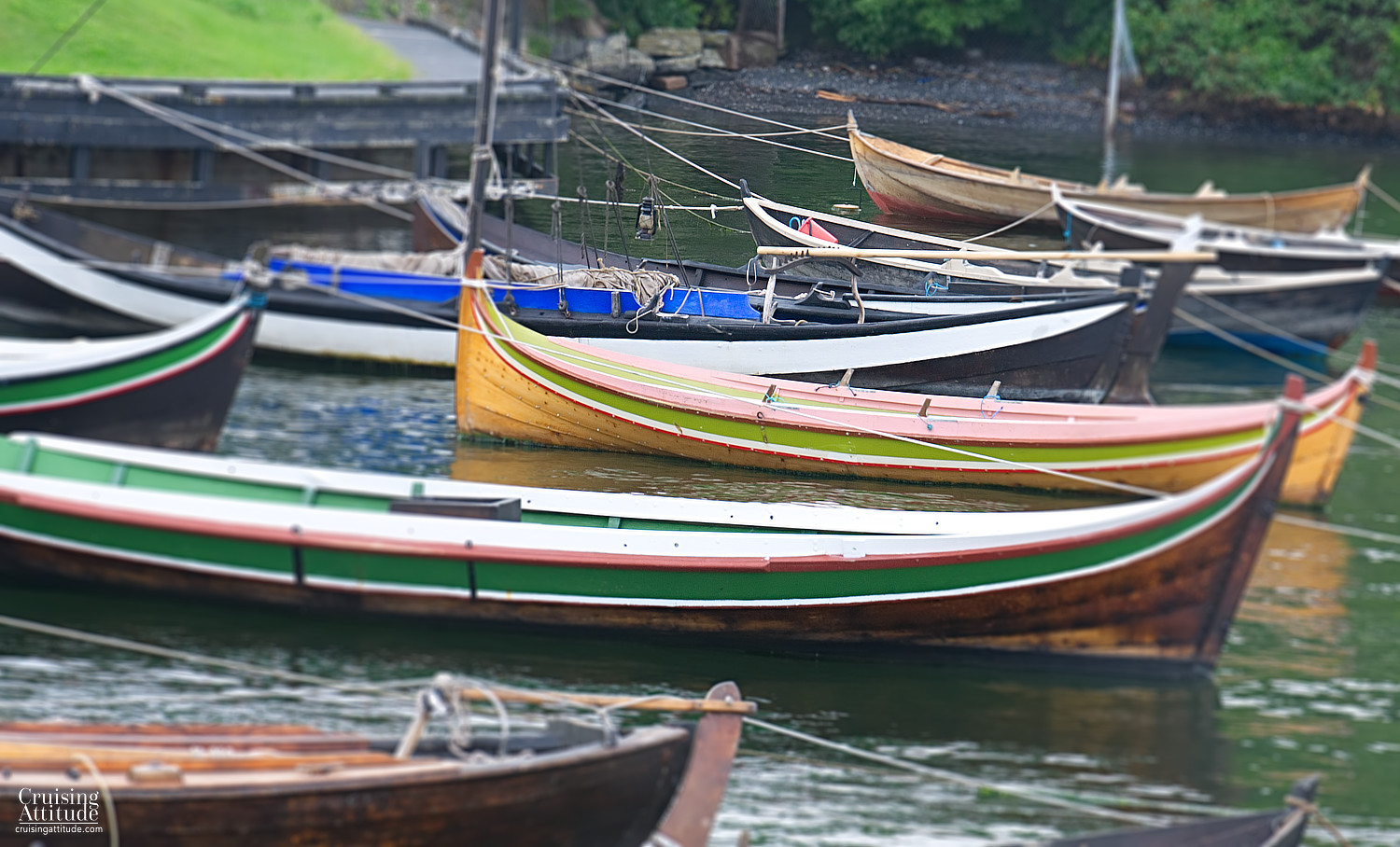
Small viking-style boats moored in the Bygdøy harbour next to the ferry boat pontoon.
We only had one day so we chose the Viking Ship Museum and the Fram Museum. We will visit the other two the next time we’re in town.
The Viking Ship Museum
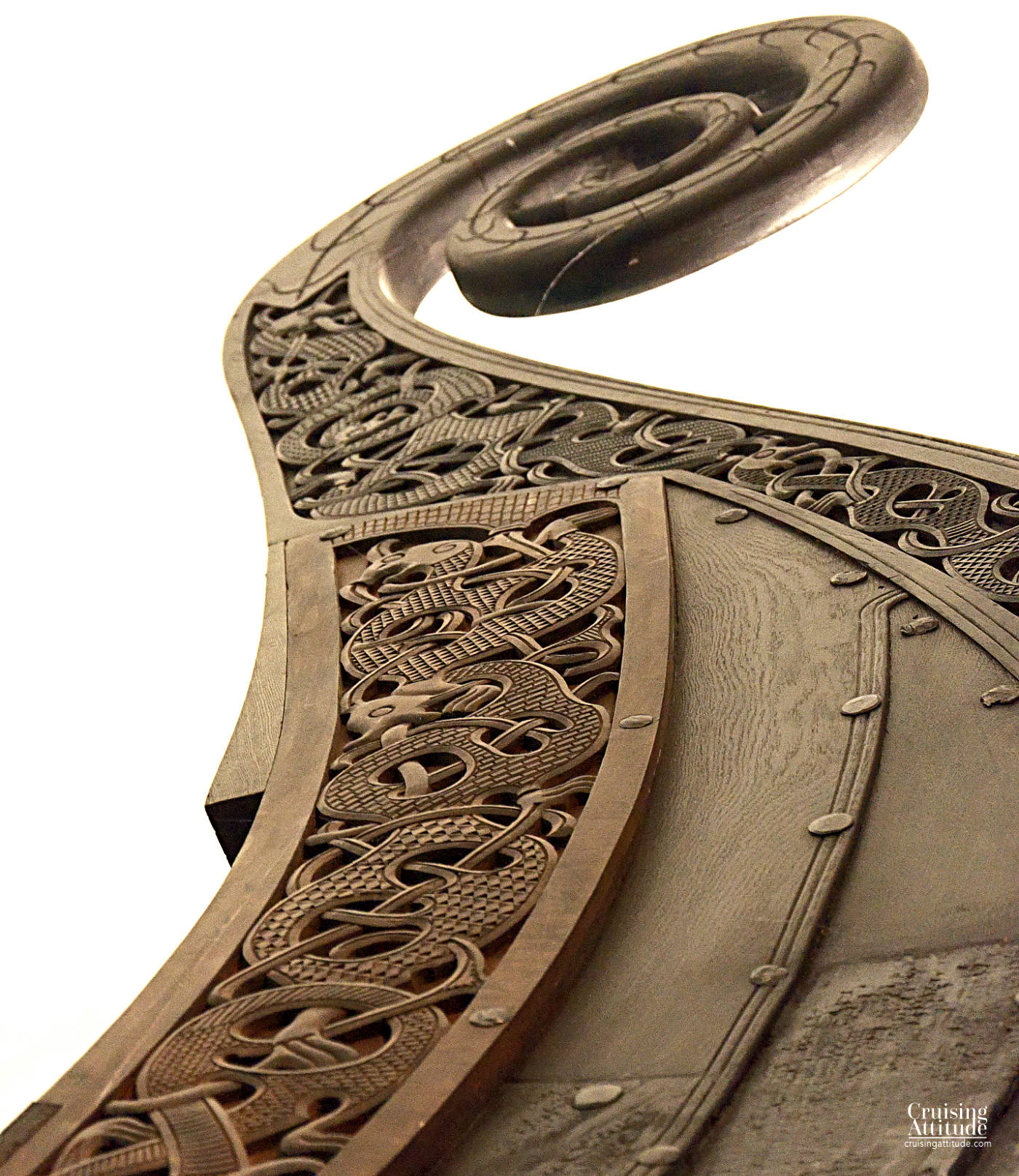
One of the viking ships that was dug up and restored for the museum
This is a must-see if you’re visiting Oslo for the first time. During our visit, three ancient viking ships were on display.
Displays of other viking artefacts including a wagon, tools and swords, as well as household items show how the vikings lived. The craftsmanship is just breathtaking! I’ll let the photos speak for themselves.
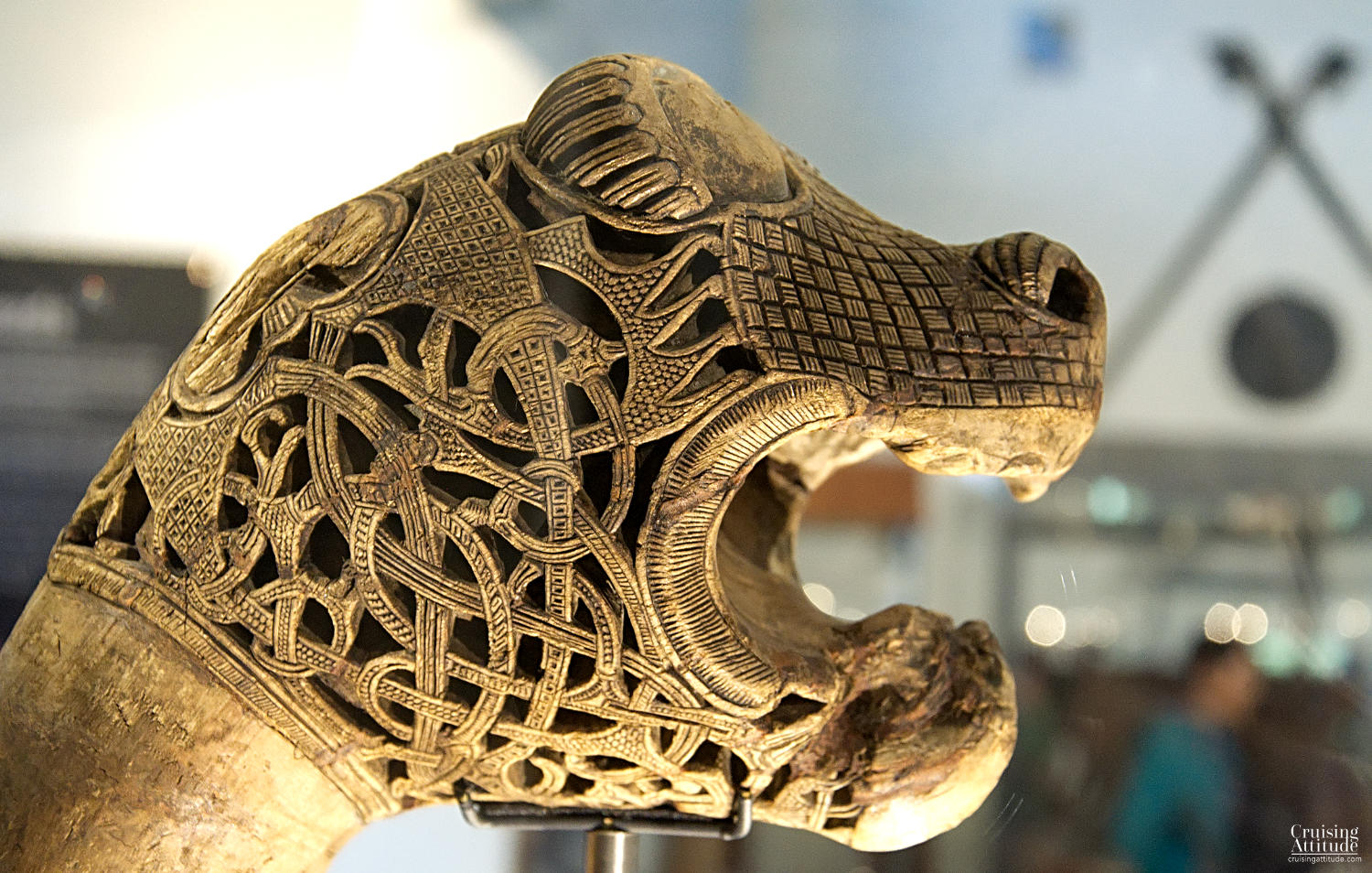
The dragon heads on the viking ships are amazing works of art. The wood carvings are intricate and complex.
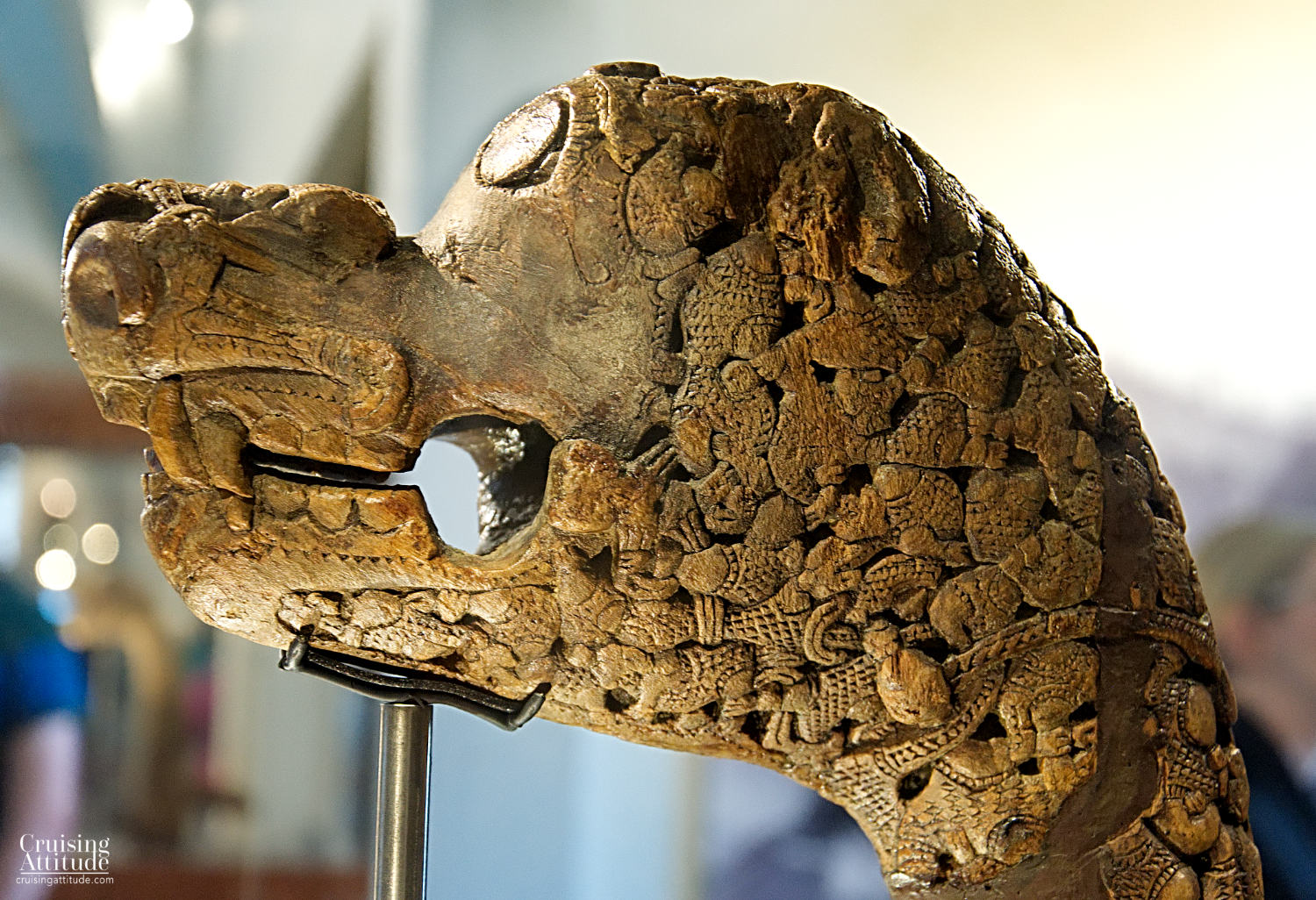
This dragon head is a bit older, so the wood had partially rotted away.
Admission is 100 NoK (discounts for children, students and seniors) and it’s open every day.
The Fram Museum – The Polar Ship Fram
The Fram museum is one of the most beautifully arranged, decorated and laid-out that we’ve ever seen.
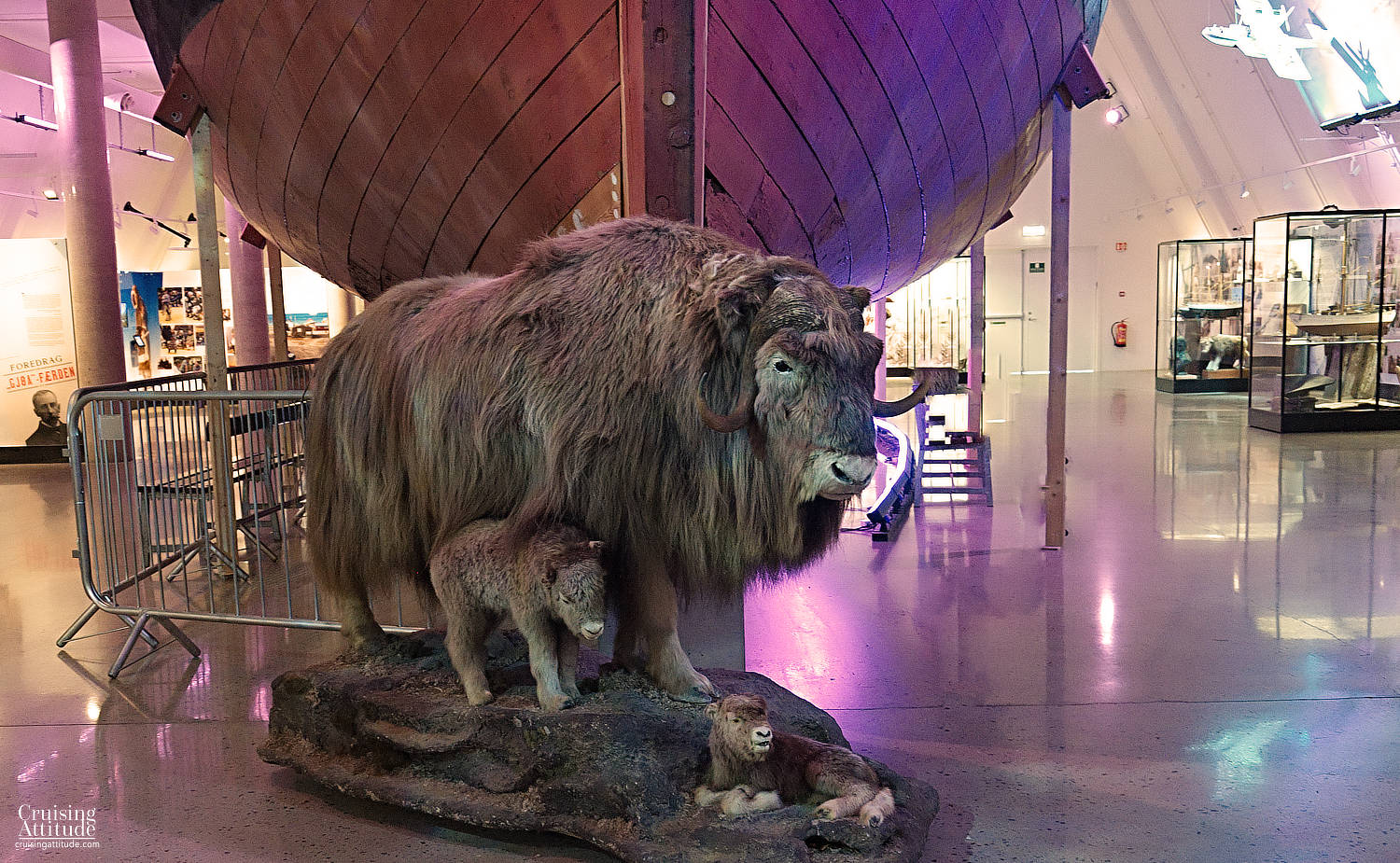
An example of one the types of animals brought back by the one of the polar expeditions.
This impressive museum is dedicated to the exploration of the Polar areas. The Fram was a wooden polar research vessel used by both Fridtjof Nansen to the north pole area and Roald Amundsen for his expedition to Antarctica. It is entirely preserved and you can go aboard and have a look at all of the living and working quarters on the boat.
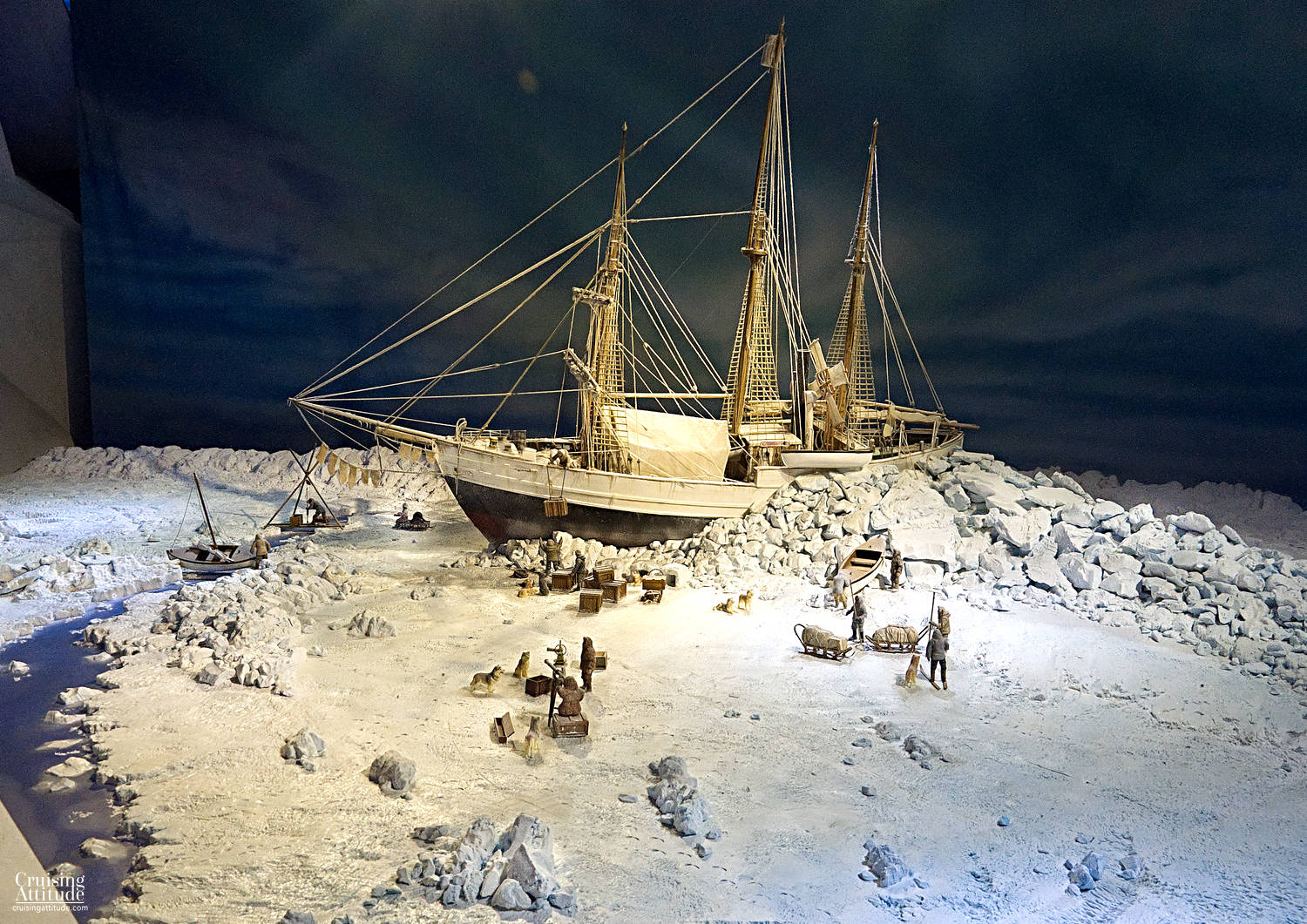
A model of the first Fram expedition – getting stuck in the ice.
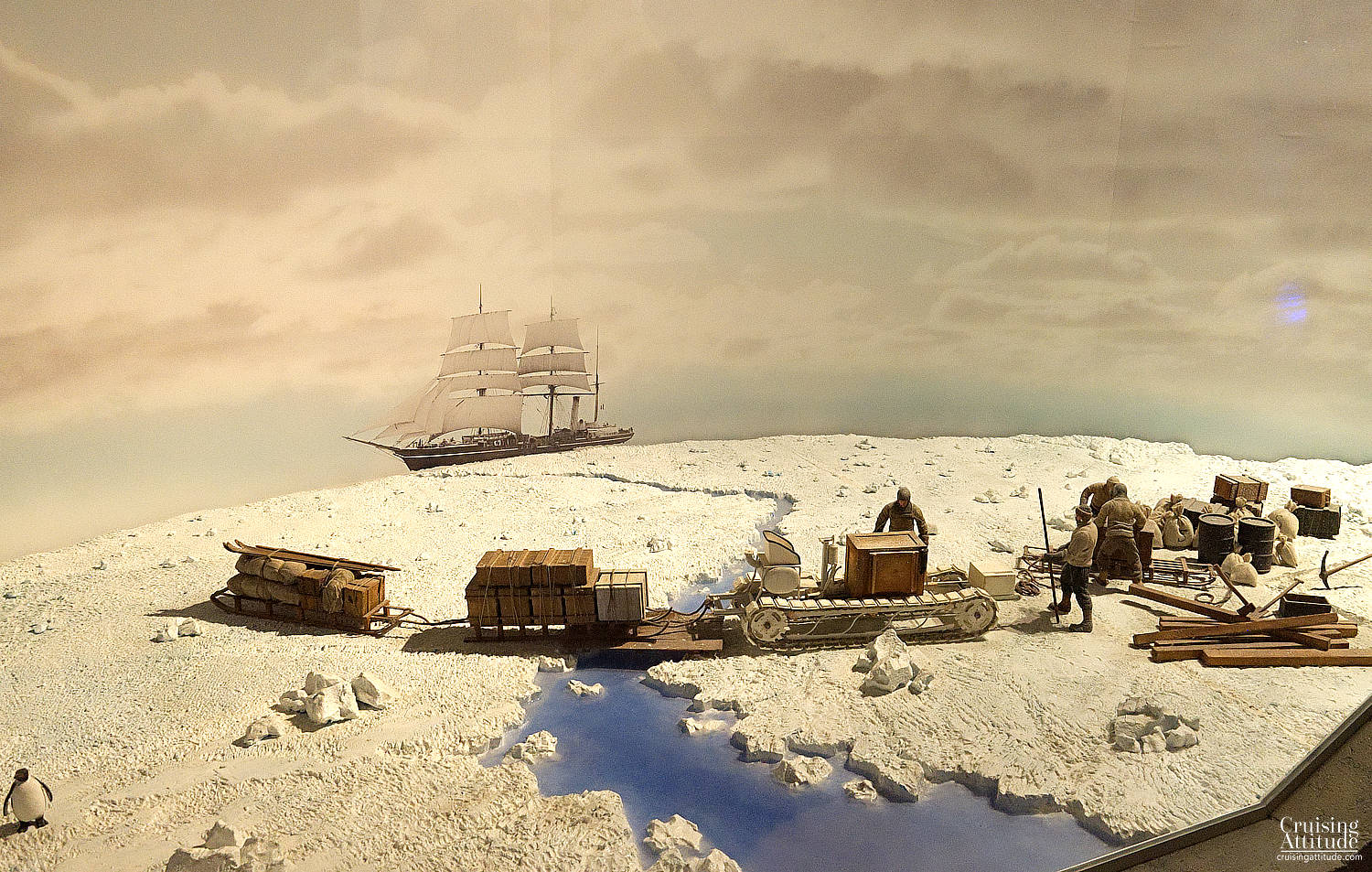
Another model of one of the Fram polar expeditions-this time in the south pole. They reached the south pole in December of 1911.
The vessel Gjøa is exhibited here as well. This is the first ship to have navigated the Northwest Passage. This expedition established the location at the time of the north magnetic pole and then proved that the magnetic pole moves over time.
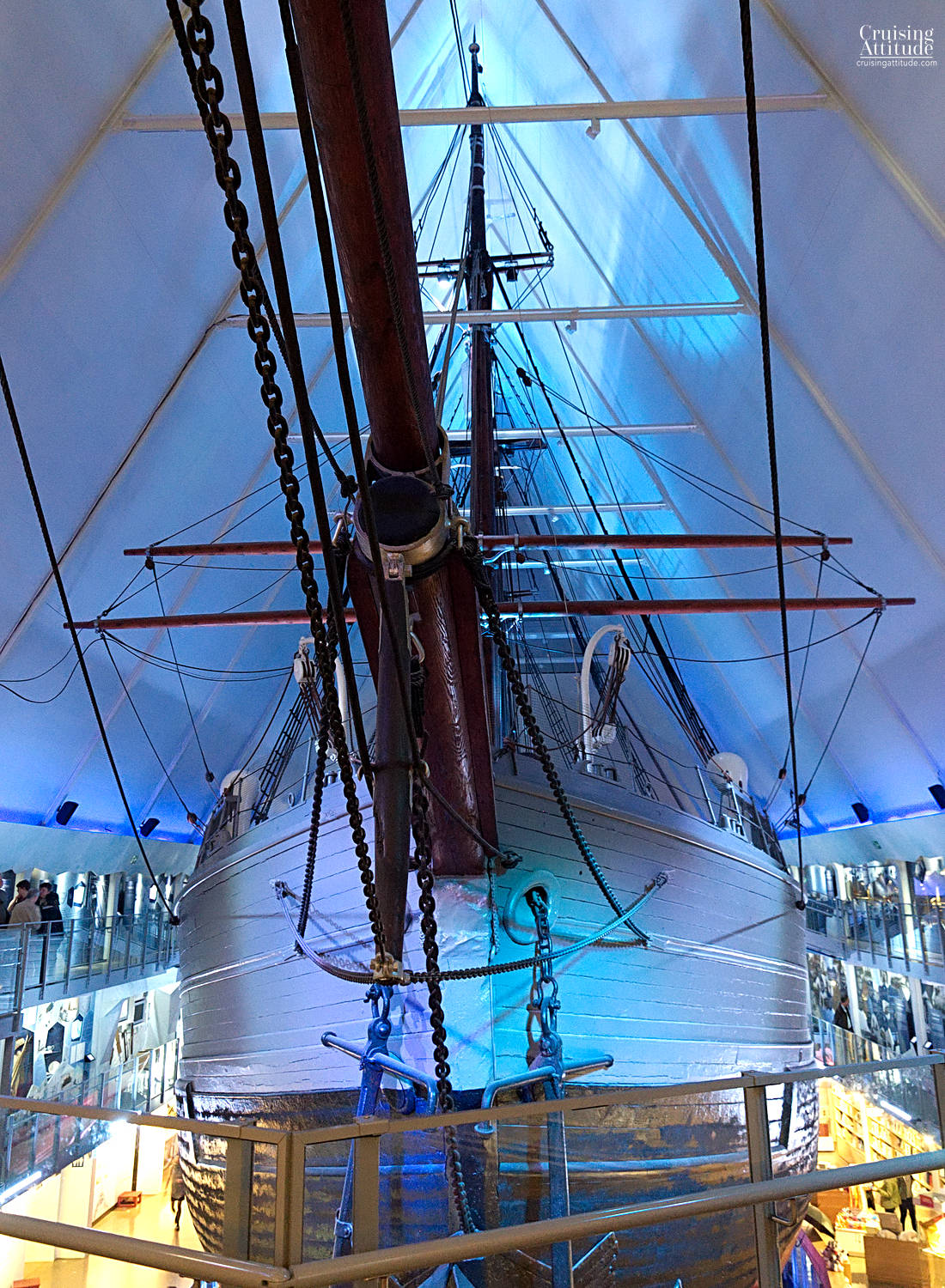
The Polar vessel Gjøa.
A cinema with translation headsets provides a crash course in Polar exploration, and numerous exhibits show the results of the research and life onboard the vessels. If you have children, there are quite a few fun and educational exhibits aimed at teaching children about the polar environment.
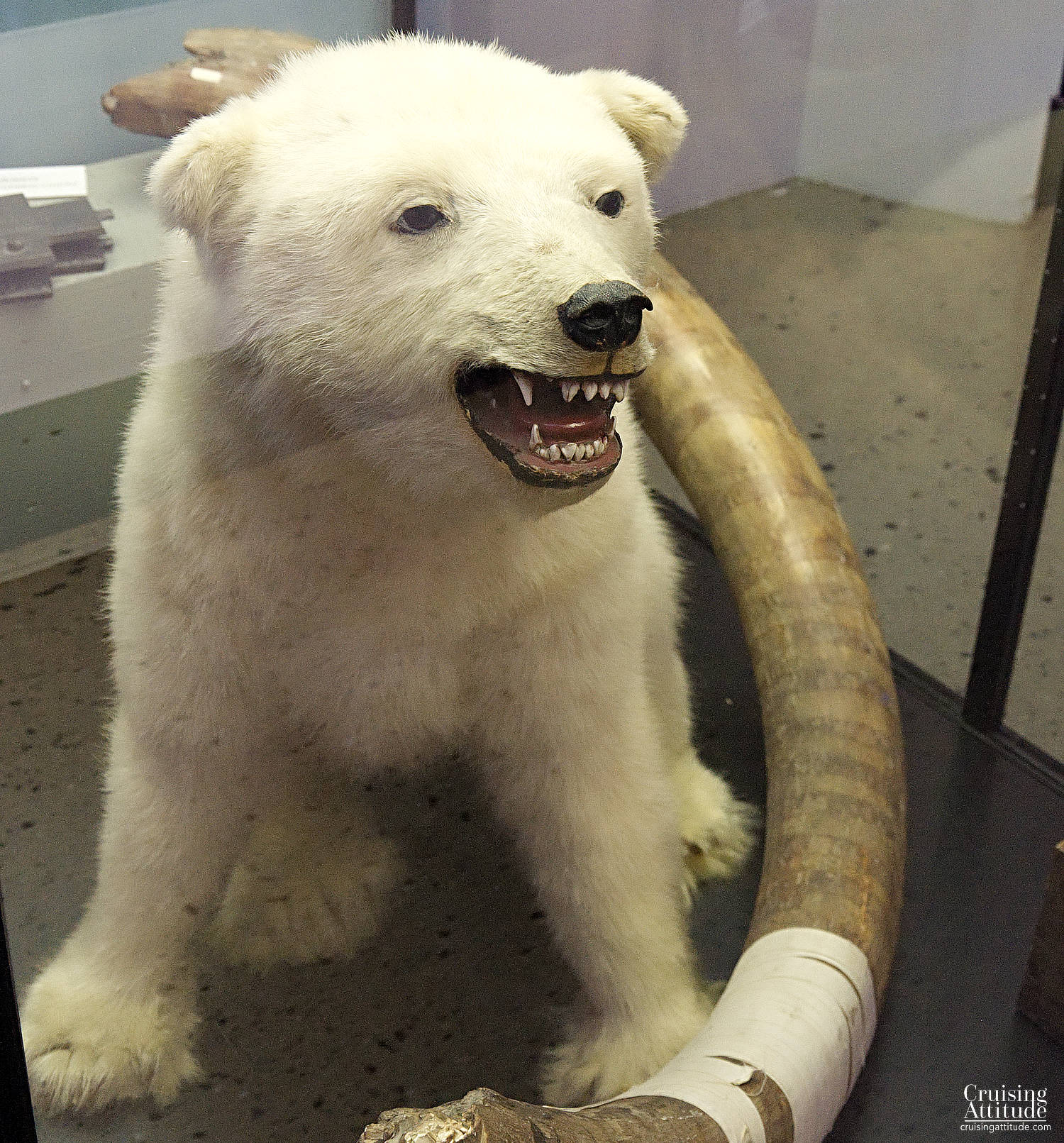
You can see that even the little cubs have very sharp teeth!
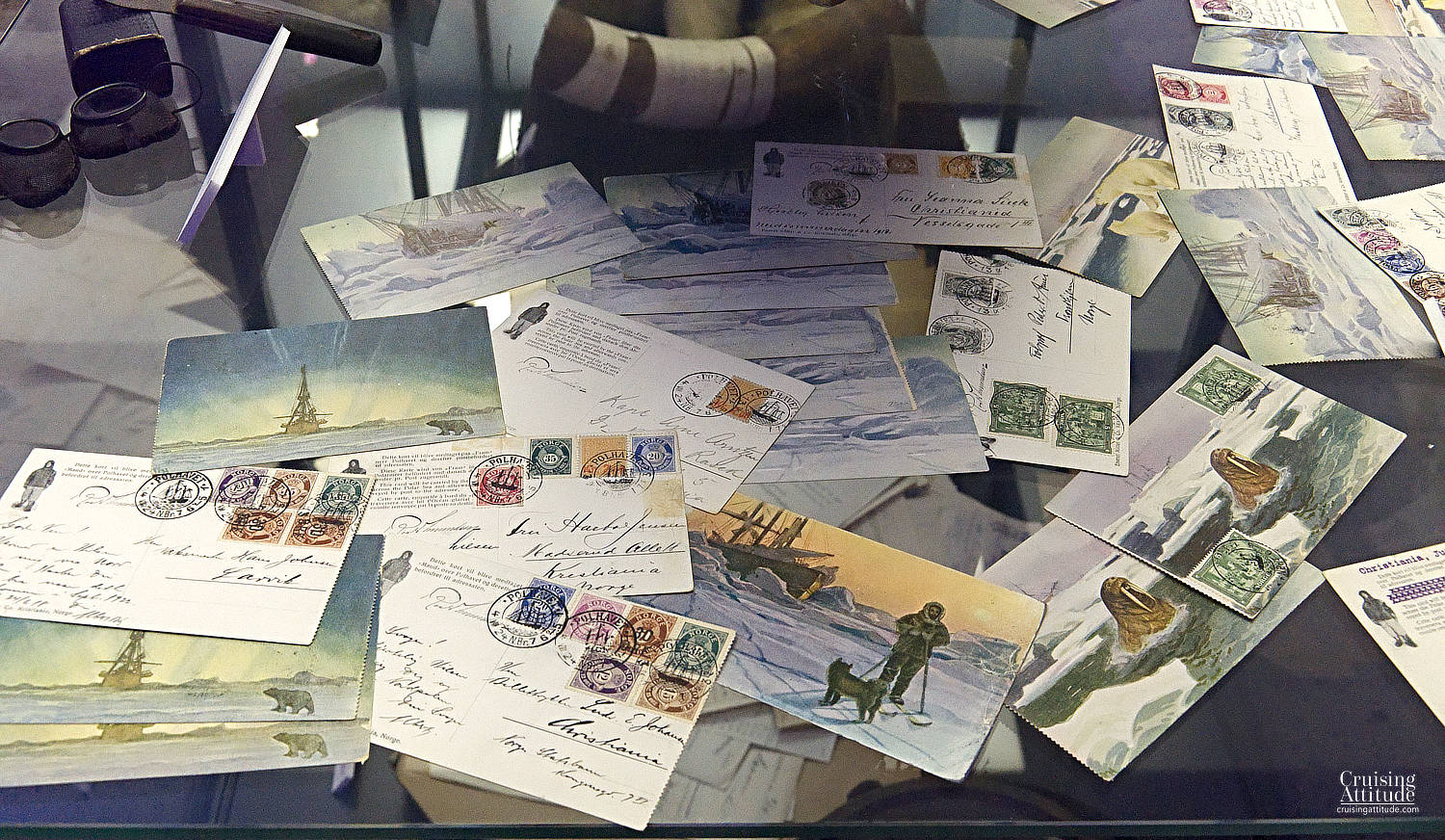
Post cards from the crew. Notice the incredible calligraphy from back in the day.
Admission is 100 NOK, with discounts for children, students and seniors. It’s open every day.
Visiting the Fram museum made us truly appreciate the modern conveniences (heating, refrigeration, for example) and equipment (gore-tex, for example) we have on today’s cruising boats!
